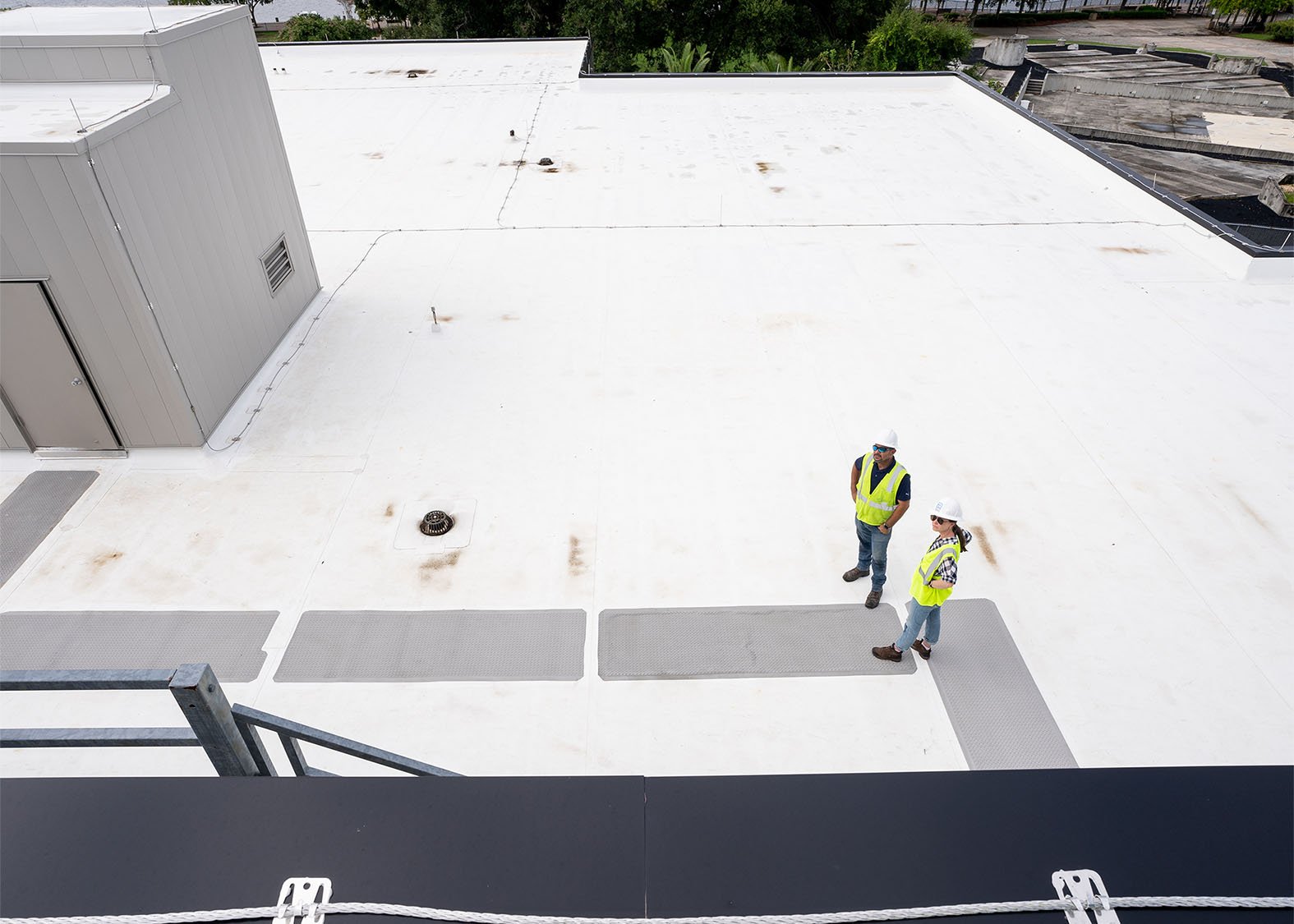Factory Mutual is one of the largest property insurance companies in the world. Over the years it has established quality control standards on building materials and set the standard for acceptable design and manufacturing guidelines.
Factory Mutual’s wind uplift certification testing, though well-intentioned, is a flawed process that incurs an undue cost on contractors and consumers, and causes unnecessary delays in the completion of construction projects.
Experienced commercial roofing contractors can follow Factory Mutual’s requirements and directives to the letter and still end up with a failed test. In fact, according to the National Roofing Contractor Association, these wind uplift tests fail about 40% of the time. I can assure you that Register Roofing’s legacy of quality installations and customer satisfaction that spans 40 years has not been built by installing roofing systems incorrectly 40% of the time. The same can be said of many of our established colleagues and peers in the commercial roofing industry.
FM Approval: An Overview
FM sets standards for both manufacturers and contractors. Manufacturers must subject their products to testing in the FM laboratory where they are assigned a wind uplift rating. When a commercial roofing contractor earns the business of an FM-ensured client, a series of steps must be followed in order to perform the work.
First, contractors are required to contact FM to determine initial requirements. Once a wind speed rating is established, the contractor must determine the proper roof assembly, then submit a contractor roof checklist along with a RoofNav number to FM for approval. After a period of time, the project can either be approved or denied.
Gaining approval to perform the job is only the beginning. The roofing system installation process must rigorously follow the guidelines set forth by FM and the manufacturer. The completed roofing system is then subject to FM testing which must be passed for the project to receive certification. Learn more about the FM approval process in this blog.
Limitations of FM Field Testing
The main issue is that Factory Mutual establishes values of wind uplift from a laboratory, under controlled conditions. There are no variables to allow for tolerance or real-life conditions on a commercial roofing project. There are guidelines for onsite testing, but materials testers are not required to carry specific credentials nor are they subject to any real oversight to ensure the tests are completed using the same process that was performed in the laboratory.
Register Roofing had a fairly recent project where a roof failed every round of negative pressure uplift testing post-installation. This occurred even though we rigorously followed FM and manufacturer guidelines, documented our process with daily photographs, and had the roofing system’s manufacturer inspect our work regularly.
We were instructed to replace the roofing system at a cost of nearly $1M that was not insured. Knowing an installation failure of that magnitude was not possible, we ordered another round of testing from a different building material testing agency.
The results? The roof passed all five tests with flying colors.
We have yet to be able to determine what caused the initial false negatives, but it could be anything from variable external temperatures to flawed testing by the initial agency. Whatever the reason, it is beyond frustrating that we had to spend an additional $150,000 to prove our work was performed correctly and avoid a $1M loss.
Alternative to FM Testing
Testing can be avoided by contracting a Visual Construction Observer (VCO) to oversee the installation process. This agent works on behalf of FM overseeing and documenting the work being performed.
Contracting a VCO may seem like an ideal solution to avoid the negative ramifications of inconsistent testing, but this presents a different problem: cost. It is about $1,000 per day to employ an onsite VCO. Considering the complexity of most commercial roofing projects, this can add tens of thousands of dollars to a job which must be passed on to the building owner. This is generally not viable either.
A Viable Solution
Factory Mutual could save our businesses substantial time and money by devising a curriculum for individuals to achieve a credentialed status and allowing contractors to employ these individuals to certify compliance through every step of the process. I and my peers would gladly agree to conform to specific accountability measures put in place by FM to ensure the credentialed advisor acts in the best interests of the insurer.
I am not proposing that our industry should be free from regulation. I recognize the value of state and local building codes and ordinances designed to ensure consumers get what they pay for and contractors are held to a standard that is logically based on local factors. What I am saying is that regulation left unchecked is detrimental to the very consumers and industries that are intended to be protected. Allowing an insurer, a private entity, to establish a national standard that generally makes more sense in a controlled environment than in the real world upsets the balance between practicality and protection.
Lincoln Register,
President, Register Roofing
